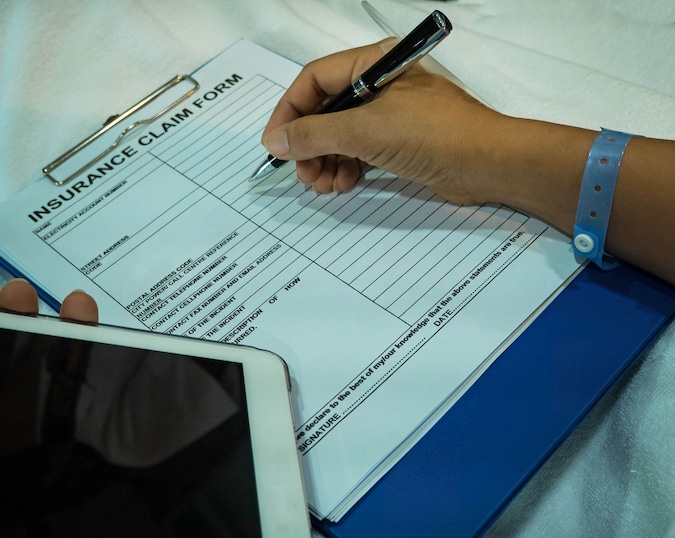
How to File a Hospital Indemnity Claim Easily

Filing a hospital indemnity insurance claim doesn’t have to be complicated. Follow this step-by-step guide to collect documents, avoid mistakes, and maximize your benefits, ensuring a smooth reimbursement process.
Hospital indemnity insurance provides cash benefits for hospital stays, offering financial peace of mind. Filing a claim correctly is essential for quick reimbursement. SelfGood empowers you with easy-to-follow guidance to file claims efficiently and avoid common pitfalls. Let’s explore how to file your hospital indemnity insurance claim effectively.
Key Takeaways:
- Collect the necessary documents like itemized bills and proof of hospital admission.
- Understand your insurance policy terms to avoid claim denials.
- Follow the detailed steps to file and track your claim to receive your benefits promptly.
Gathering Necessary Documents

Proper documentation is crucial for a successful claim. Here’s what you need:
- Insurance Policy DetailsYour policy number and coverage information are required to identify your account. These details can usually be found in your policy paperwork or online account.
- Itemized Hospital BillsRequest a detailed bill from your hospital. It should list all procedures, services, and associated costs. Accurate billing ensures you get reimbursed for covered expenses.
- Proof of Hospital Admission and DischargeThis proof comes from your discharge papers or a hospital letter, showing your admission and discharge dates. Keep these documents in a secure place.
- Medical Reports and DiagnosesThese reports provide evidence of why you were hospitalized and the treatments received. They are critical for substantiating your claim.
Tips for Staying Organized:
- Make copies of all documents for your records.
- Use a binder or digital folder to keep everything easily accessible.
- Double-check for completeness to prevent delays.
Understanding Your Insurance Policy Terms
Before filing a claim, review your policy. This will help you understand your coverage and avoid claim denials.
Key Points to Review:
- Policy Exclusions and Inclusions:Your policy may not cover all hospital stays. For example, some pre-existing conditions might be excluded. Check the fine print.
- Coverage Limits:Know the maximum number of days covered or the total benefit amount. This helps manage expectations and ensures you understand potential out-of-pocket costs.
- Benefit Amounts:Familiarize yourself with your daily or per-incident benefit amount to budget effectively.
Understanding these terms keeps you informed and reduces the likelihood of unexpected denials.
Step-by-Step Guide to Filing Your Claim
Here’s a breakdown of the process:
Step 1: Notify Your Insurance Provider
- When to Contact:Reach out as soon as possible. Some policies have strict time frames for claim notifications.
- How to Contact:Options include phone, email, or through your insurance provider’s online portal. Be prepared to share your policy number and hospitalization details.
Step 2: Complete the Claim Form
- Where to Find It:Download the form from your insurer’s website or request a mailed copy.
- Filling It Out:Provide accurate information, such as your hospital admission and discharge dates, and a short description of your treatment.
- Double-Check for Accuracy:Mistakes can lead to delays or denials, so be thorough.
Step 3: Attach Supporting Documents
- What to Include:Itemized hospital bills, proof of admission and discharge, medical reports, and your completed claim form.
- Organization Tips:Place documents in the order requested by your insurer for easy review.
Step 4: Submit the Claim
- Submission Methods:Online submissions are typically faster, but you can also send your claim by mail or deliver it in person. Always keep a copy of your confirmation.
Step 5: Follow Up on Your Claim
- Tracking Status:Use your insurer’s online portal or call for updates. If there are delays, inquire about the cause and if additional information is needed.
Common Mistakes to Avoid When Filing
Even small errors can delay your claim. Here’s what to watch out for:
1. Incomplete Forms
- Double-check all sections of your form to ensure everything is filled out. Missing information is a common cause of claim denial.
2. Missing Documents
- Always include every required document. Verify that itemized bills and medical reports are accurate and comprehensive.
3. Misunderstanding Policy Terms
- Claims may be denied if you misunderstand coverage details. If you have questions, contact your insurance provider before submitting your claim.
4. Delays in Filing
- Timeliness is crucial. Some insurance policies have strict deadlines, so file your claim as soon as possible.
5. Incorrect Information
- Double-check all personal and medical details. Any errors could delay or result in the denial of your claim.
What to Do if Your Claim Is Denied

Denial doesn’t mean you’re out of options. Here’s what to do:
Understand the Denial Reason
- Your denial letter will specify why your claim was rejected, such as missing information or policy exclusions. Review this carefully.
Steps to Appeal
- Review Your Policy:Check if the denial reason is valid.
- Gather Additional Evidence:If necessary, request a letter from your healthcare provider to support your claim.
- Resubmit Your Claim:Include the new evidence and a detailed explanation addressing the denial reasons.
Appealing may feel daunting, but persistence often pays off.
Maximizing Your Benefits: Tips and Tricks
Keep Thorough Records
Document every interaction with your insurer, noting the date, time, and the details discussed.
Work with Hospital Billing Departments
They can provide any additional documents needed to support your claim. Don’t hesitate to ask for their help.
Seek Professional Advice
If your claim is complicated, consult an insurance claims expert or advocate.
Final Thoughts
Filing a hospital indemnity insurance claim doesn’t have to be stressful. By understanding your policy, gathering the right documents, and following the proper steps, you can ensure a smoother and quicker reimbursement process. Remember, preparation and organization are key to success.
Frequently Asked Questions
What is the typical time frame for claim approval?
Approval times vary, but most claims are processed within 30 days. Check with your insurance provider for their specific timeline.
Can I file a claim for outpatient services?
Typically, hospital indemnity insurance covers inpatient stays. Some policies may provide limited coverage for outpatient services, so review your policy.
How do I know if my claim will be fully covered?
Check your policy for benefit limits and exclusions. Contact your insurer for a clear understanding of your coverage before filing a claim.
Sources:
SelfGood. (n.d.). SelfGood




